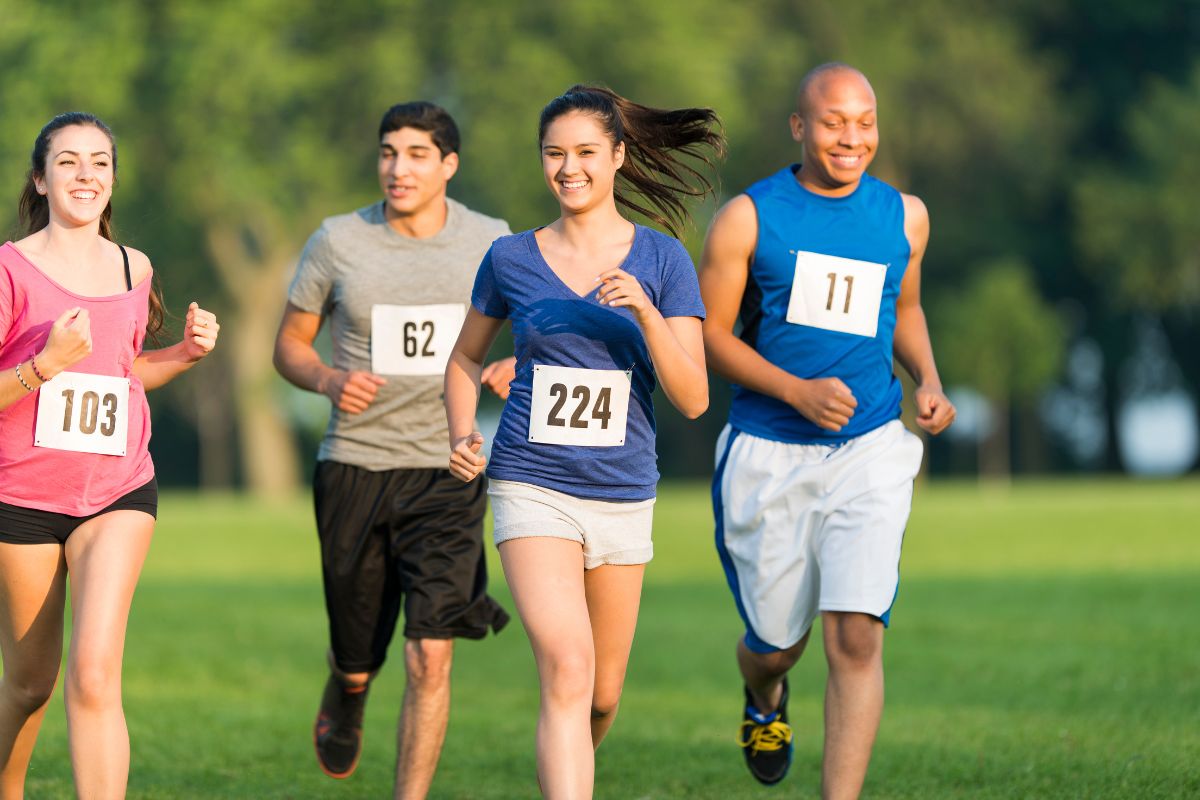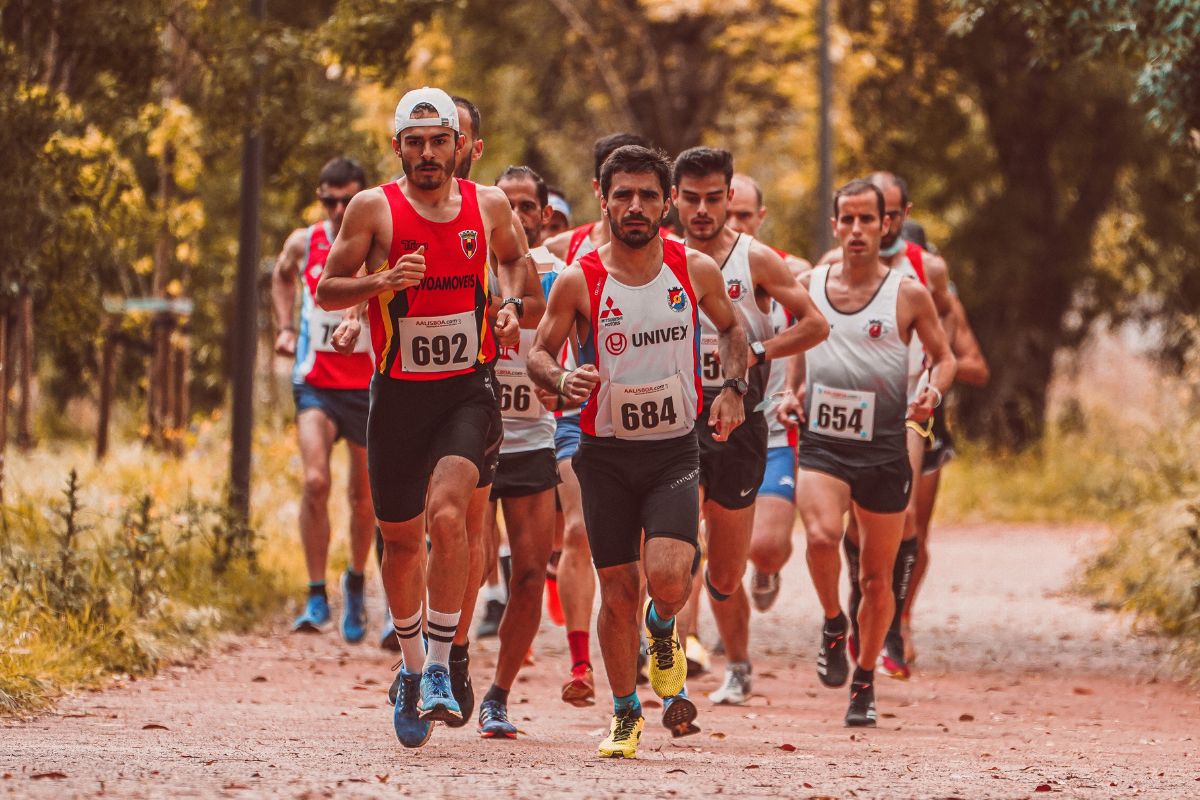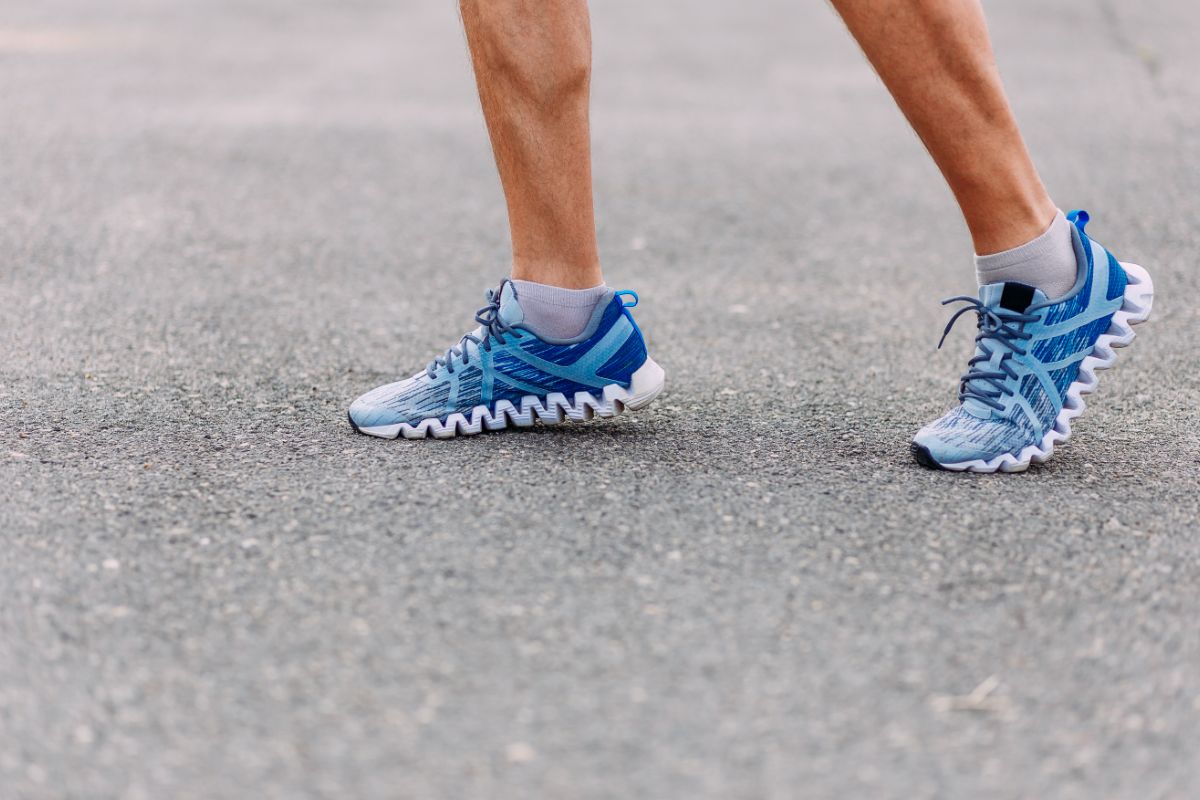Running is one of the most popular forms of exercise out there. It keeps you healthy, improves mental health, and is one of the best forms of cardio out there.

However, if you’re just starting out, you might be wondering what a good running speed is to aim for.
In this article, we’ll take you through how fast an average person can run as well as some of the factors that can influence a person’s running speed.
So let’s jump right into it, shall we?
What Is The Average Running Speed?
So first things first – let’s take a look at how fast an average person can run.
It’s important to understand that every person is different, and there are many factors that can influence a person’s running speed (though we’ll get into that later!).
With that said, though, the average person will typically stay within a certain range of speed.
On average, an adult man (between the ages of 20 and 40 years old) will be able to run at a speed of 8 mph, or around 13 km/h.
Meanwhile, the average adult woman can run at around 6.5 mph (or about 10.5 km/h).
These are speeds that can be sustained – while the average person can go faster if they are sprinting, they won’t be able to keep the same speed up over longer distances.
Speaking of which, let’s go over the average person’s sprinting speed!
Because people typically don’t sprint for long periods at a time, they are able to use more energy to move much faster.
As a result, the person’s sprinting speed is a much faster 15 mph (or 24 km/h)!
While these speeds are faster than the running speed, the average person won’t be able to sustain this pace over long-distance runs.
So while it’s possible for someone to exceed the average running speed if they really push themselves, you’ll only really see this in shorter spans or running (for example, in a 100m sprint).
What’s The Fastest A Person Can Run?

So we’ve covered how fast the average person can run – but what’s the fastest running speed a human can achieve?
Professional athletes can predictably run much faster than a regular person, and elite runners generally run at speeds of around 18 mph, or 30 km/h.
Olympic sprinters, who are among the fastest people in the world, can reach a blistering speed of 20 mph (around 32 km/h)!
The fastest recorded running speed ever recorded is Usain Bolt’s record-breaking 100m sprint of 9.58 seconds in the 2009 World Athletics Championships, a world record that still hasn’t been beaten to this day.
This put Bolt at an incredible top speed of almost 28 mph, or 44 km/h.
Meanwhile, the fastest running speed for a woman is Florence Griffith-Joyner’s 100m sprint in 1988, which came in at 10.49 seconds and put her at an average speed of around 21 mph (just under 34 km/h).
Griffith-Joyner’s 1988 record still stands.
What Factors Affect A Person’s Running Speed?
As mentioned earlier, there are several factors that can affect how fast a person can run.
While these don’t change the average running speed, they can influence how fast an individual can be.
Here, we’ll break down some of these factors and see how they affect a person’s running speed.
Age
One of the most obvious factors that influence running speed is a person’s age.
While age doesn’t necessarily determine how fast you can run (of course, there are older and younger people who can be faster than average), it’s not hard to see how most people are at their fastest in their 20s and 30s.
Younger children don’t yet have the physical strength to run fast over long distances, while older people will start to lose their vitality as they age.
This means that adults aged between 20 to 40 years old will typically be at their peak condition and can generally run faster.
Clothing
It might not seem like the most important element at play when running, but clothing can actually make a big difference.
The ideal running attire is light, well-ventilated, and allows for a wide range of motion.
Tight clothing can restrict movement and easily lead to overheating, which makes it hard to run at your top speed.
In the same way, thicker clothes like jeans don’t provide much ventilation (and can chafe) – again, this limits your running speed and endurance.
Proper footwear is also key. Wearing a good pair of running shoes makes a massive difference and will help you run at your best.
This is because they are designed to improve how you run by reducing the impact of footfalls, keeping your feet light and ventilated, and overall making it easier for you to run.
Strength And Endurance
It might be a bit obvious, but physical fitness is a large factor in a person’s running speed.
People with a higher level of physical strength and endurance will be able to run faster for longer distances compared to people who aren’t as fit.
Like any exercise, running requires a lot of energy; if you don’t have the energy to keep up then your running speed will be lower.
Fitness levels aren’t the only factor at play here though, and weight can also make a difference to running speed.
Heavier people will require more energy to move their body – this applies to muscle weight as well, and you might find that a slimmer person can run faster than someone with a lot of muscle!
Luckily, this is something that anyone can work on. With a bit of work and training, anyone is able to improve their running speed!
Final Thoughts
So there you have it – now you know a bit more about how fast the average person can run, as well as some factors that play into a person’s running speed!
It’s important to remember that everybody’s different, and there isn’t a specific speed that you should be running at.
Not everyone can run at the same speed as a top athlete – so don’t worry if you can’t run a 5-minute mile!
At the end of the day, running is a great form of exercise that keeps you fit while also being really fun.
With some training and hard work, you too can improve your running speed!
- Can Dogs Run Faster Than Humans? (Running With Your Furry Friend) - October 4, 2022
- 10 Doggie Fun Runs You Will Love [Ultimate Guide] - October 4, 2022
- What Are Division Results In Running? - October 4, 2022








